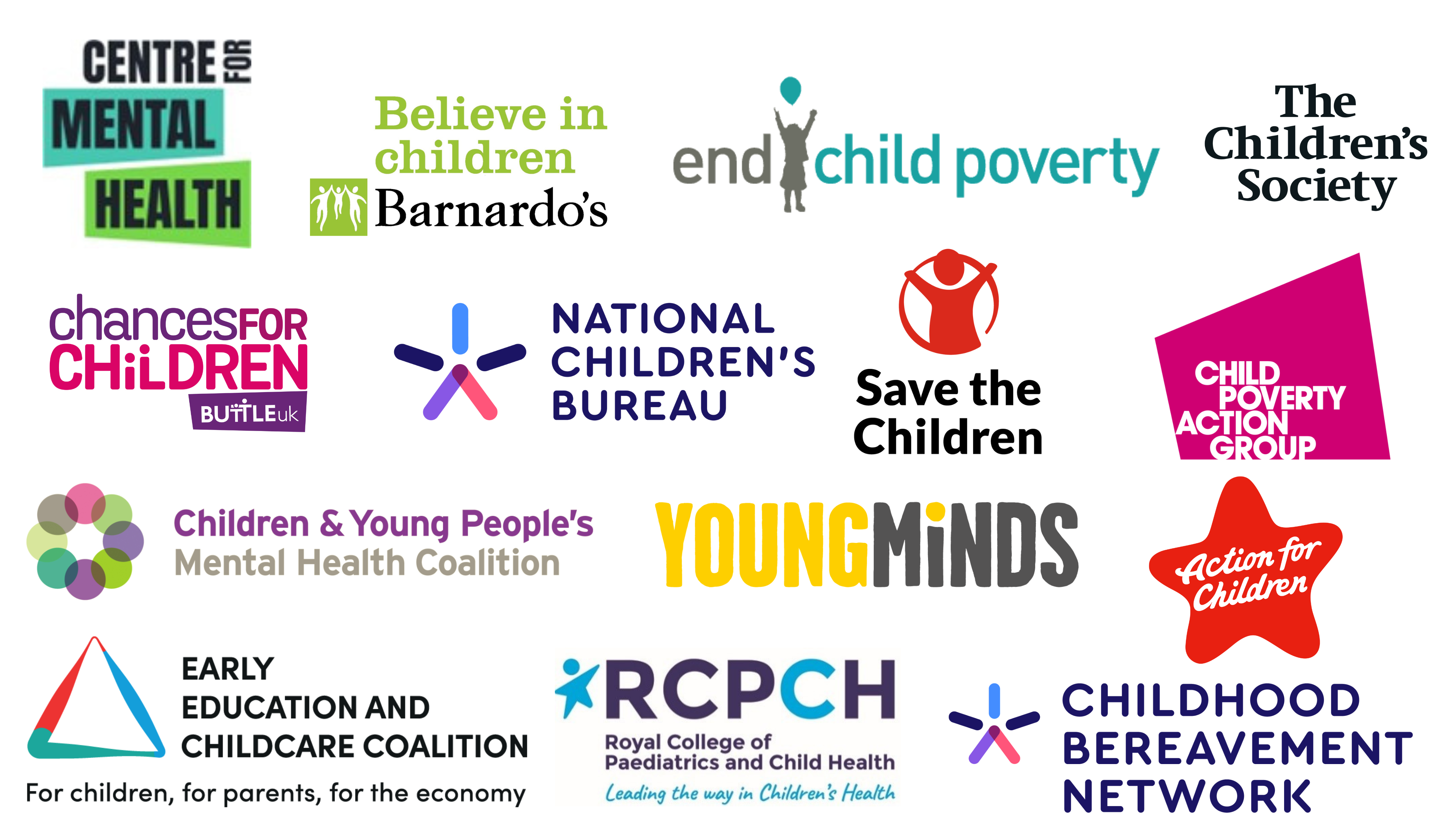Joint position statement: Child poverty
The organisations named below have endorsed the following joint policy position on ending child poverty:
In advance of the election, all political parties should commit to:
The first King’s Speech after an election to include a Bill to set targets relating to the eradication of child poverty, and to make other provision about child poverty.
Alongside this, coproduced with children, young people and parents a child poverty strategy which takes into account wider social determinants – including housing, employment, education, childcare costs and wider economic levers and sets out how all levels of Government can play a coordinated role in ending child poverty.
As a downpayment on the longer-term goal to end child poverty, and to prove serious intent, we advocate the following specific policy changes:
Scrapping the 2-child limit to benefit payments, investing £1.3 billion a year to lift 250,000 children out of poverty and reduce depth of poverty for 850,000 children.
Scrapping the benefit cap, investing £300 million to reduce depth of poverty for 250,000 children.
A Child Lock, whereby child-related benefits are uprated by the rise in average earnings or the rate of the Consumer Price Index each year, whichever is higher.
Taking initial steps towards implementing an Essentials Guarantee and extending its principles to children’s benefits – by introducing:
-
a protected minimum amount of support for all households on Universal Credit, including those with children. Which deductions and caps would not be allowed to reduce support below;
-
establishing an independent process to advise on the right level for the Guarantee, and how a similar approach could be applied to determining the right amount for children’s benefits.
In the medium term all political parties should commit to:
Bringing in wider reforms to housing, education, employment and childcare as set out in the child poverty strategy.
More fundamental reforms of the social security system to further reduce child poverty, including:
-
-
increasing the child element of Universal Credit and increasing child benefit;
-
increasing the protected minimum amount of support of Universal Credit to the full independently recommended level to ensure support is always at least enough for families with children to afford essentials like food and household bills (i.e. full implementation of the Essentials Guarantee).
-
The overarching longer-term goal, enshrined in binding legislation, must be to eradicate child poverty entirely.
All specific decisions relating to the above must be guided by the following principles:
1
Decisions, spend and policy on child poverty should be based on evidence and data on prevalence and impact of child poverty and what is proven works to address child poverty.
Decisions, spend and policy on child poverty should be based on evidence and data on prevalence and impact of child poverty and what is proven works to address child poverty.
2
Government decisions that affect children and families experiencing poverty should be informed by those with lived experience – giving them an opportunity to co-produce policies and services and talk to the issues which affect them.
Government decisions that affect children and families experiencing poverty should be informed by those with lived experience – giving them an opportunity to co-produce policies and services and talk to the issues which affect them.



